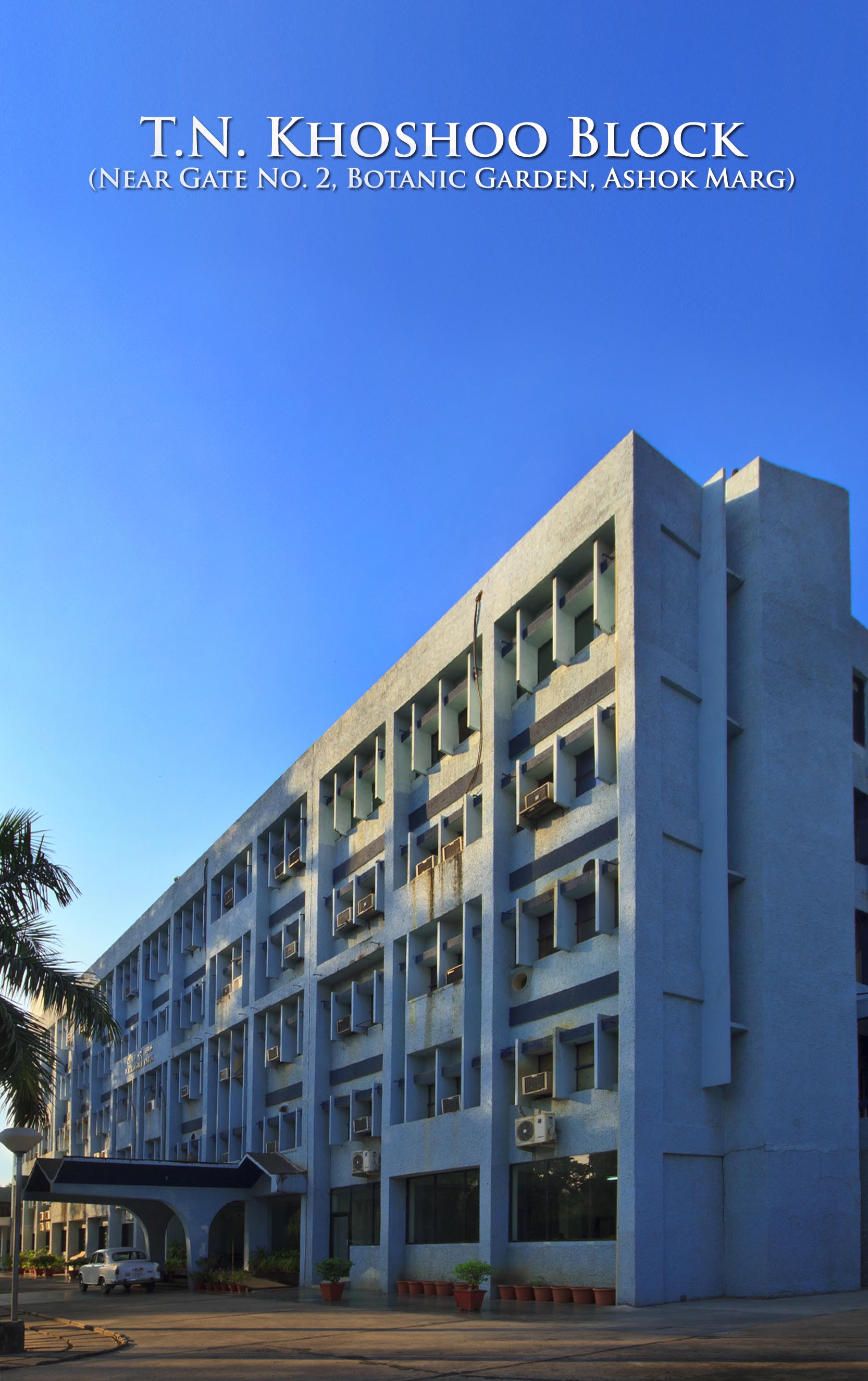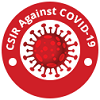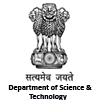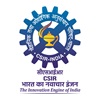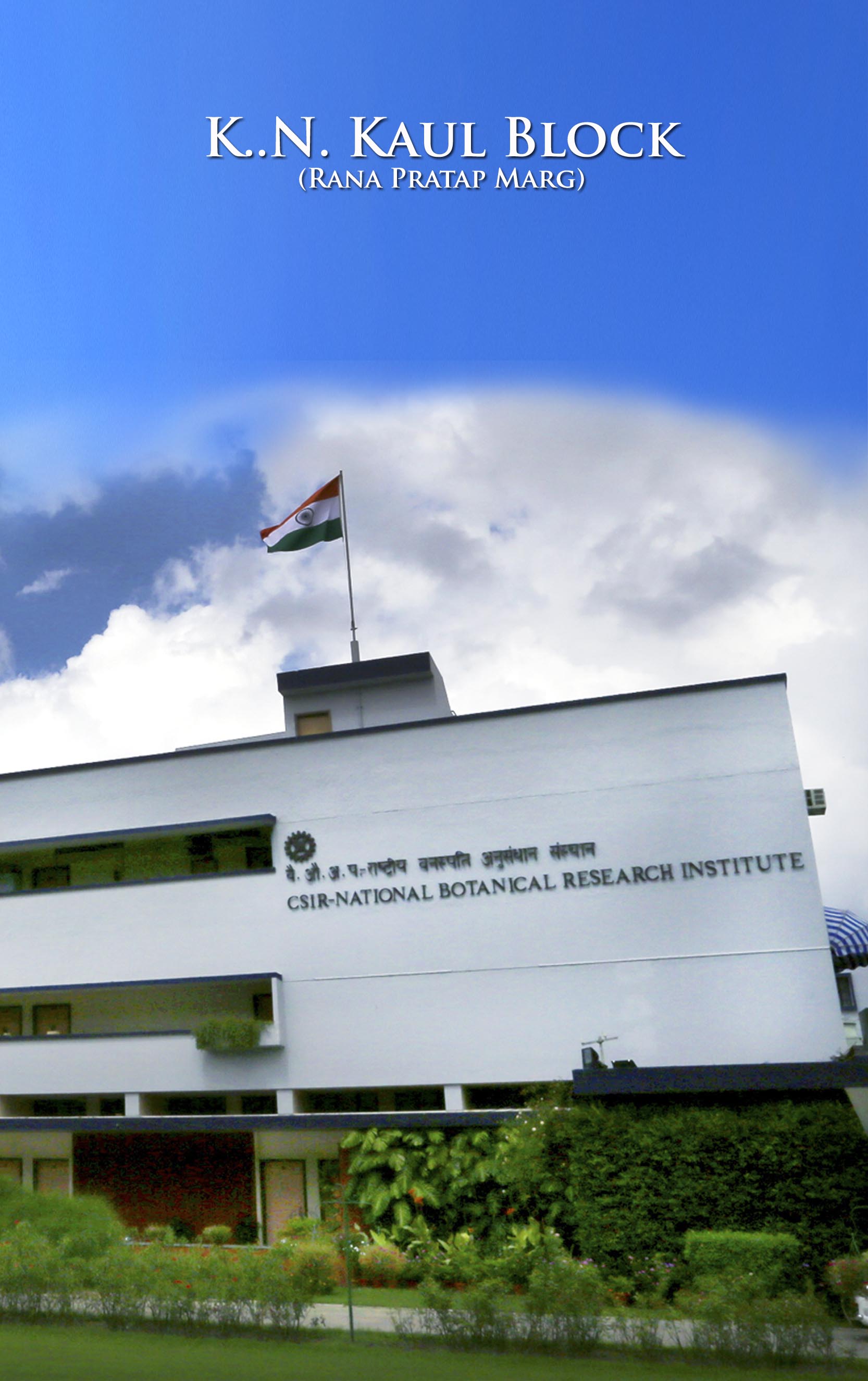

Dr. Debasis Chakrabarty
Senior Principal Scientist
Research Interests
Our study described the principal understanding on the molecular basis of arsenic toxicity and accumulation in plant parts. And also covered the transgenic and bioremediation approaches to minimize As accumulation in rice which further reduces food chain contamination.
Dr. Debasis Chakrabarty
Senior Principal Scientist
Research Summary
Approaches for reducing grain arsenic accumulation in rice
Our study described the principal understanding on the molecular basis of arsenic toxicity and accumulation in plant parts. And also covered the transgenic and bioremediation approaches to minimize As accumulation in rice which further reduces food chain contamination. The data suffice to mitigate the effects of As toxicity as much as possible by reducing the As accumulation in rice grain. We described the measures to decrease As accumulation in rice, and to understand the mechanism and transport of As uptake, its transport from root to shoot to rice grain, its metabolism, detoxification as well as the mechanisms lying behind its accumulation in rice grain. We proposed various check points which can be targeted to reduce As accumulation in rice grain. Genes/protein involved in As detoxification like glutathione biosynthesis, Phytochelatin synthesis, and arsenic methytransferase are also provided a great pool of pathways that can also be castellated for the same purposes.
Transgenic approaches for generating multiple abiotic stress tolerance in rice
We also studiedthe functional and molecular aspect of abiotic stress tolerance particularly drought and other metal stresses in rice to improved strategies for crop development to avoid crop failure during environment challenges. Hence, it refines our understanding of an adaptive mechanism for drought tolerance in rice to have unceasing rice production to meet the demands of expanding the global population.Detailed stress signaling during different abiotic stress also studied to decipher the molecular mechanism.We also hunt severals drought responsive and yield-oriented genes using genome-wide sequencing platform. And targeting these genes to develop transgenic lines will help in specifically enhancing traits which will improve crop to adapt in water deficit condition without compromising yield and productivity with less expense and fast as compared to conventional approaches.
Understanding the molecular basis for somatic embryogenesis in rice
Our lab is actively working on molecular signaling approach involve in differential somatic embryogenesis and regeneration potential among rice subspecies japonica and indica. Our recent findings suggested positive regulation of the genes related to meristem regulation, Myb transcription factor, and somatic embryogenesis responsive kinase gene family (SERK) during sequential in vivo developmental stages in rice. Presently we are trying to explore upstream, and downstream regulators involve in Myb and SERK mediated somatic embryogenesis, as well as identification of genes, involve during meristem regulation in monocot plants.
Dr. Debasis Chakrabarty
Senior Principal Scientist
Publications
– Manju Shri, Pradyumna Kumar Singh, Maria Kidwai, NeelamGautam, Sonali Dubey, Giti Verma and Debasis Chakrabarty (2019) Recent advances in arsenic metabolism in plants: current status, challenges and highlighted biotechnological intervention to reduce grain arsenic in rice. Metallomics DOI: 10.1039/c8mt00320c.
– Maria Kidwai, YogeshwarVikramDhar, NeelamGautam, Madhu Tiwari, IffatZareen Ahmad, Mehar Hasan Asif, DebasisChakrabarty (2019) Oryza sativa class III peroxidase (OsPRX38) overexpression in Arabidopsis thaliana reduces arsenic accumulation due to apoplastic lignification. Journal of Hazardous Materials 362:383-393
– Tiwari P, Indoliya Y, Singh PK, Singh PC, Chauhan PS, Pande V, Chakrabarty D (2018) Role of Dehydrin-FK506-binding protein complex in enhancing drought tolerance through ABA-mediated signaling pathway. Environmental and Experimental Botany, doi.org/10.1016/j.envexpbot.2018.10.031
– Srivastava D, Verma G, Chauhan AS, Pande V, Chakrabarty D (2018) Rice (Oryza sativa L.) tau class glutathione S-transferases (OsGSTU30) overexpression in Arabidopsis thaliana modulates regulatory network leading to heavy metal and drought stress tolerance. Metallomics, doi.org/10.1039/C8MT00204E
– S Dubey, M Shri, A Gupta, V Rani, D Chakrabarty (2018) Toxicity and detoxification of heavy metals during plant growth and metabolism. Environmental Chemistry Letters, 1-24
– Verma S, Verma PK, Meher AK, Bansiwal AK, Pande V, Tripathi RD, Chakrabarty D (2018)A novel fungal arsenic methyltransferase, WaarsM reduces grain arsenic accumulation in transgenic rice (Oryza sativa L.). Journal of Hazardous Materials. 344: 626-634.
– Pradyumna Kumar Singh, YuvrajIndoliya, Abhisekh Singh Chauhan, SurendraPratap Singh, Amit Pal Singh, Sanjay Dwivedi, RudraDeoTripathi, Debasis Chakrabarty (2017) Nitric oxide mediated transcriptional modulation enhances plant adaptive responses to arsenic stress. Sci Rep (Nature Publishing Group)doi:10.1038/s41598-017-03923-2
– Tibpromma et al. (2017) Fungal diversity notes 491–602: taxonomic and phylogenetic contributions to fungal taxa.Fungal Diversity 83: 1-261
– Giti Verma, YogeshwarVikramDhar, Dipali Srivastava, Maria Kidwai, Puneet Singh Chauhan, Sumit Kumar Bag, Mehar Hasan Asif, DebasisChakrabarty(2017) Genome-wide analysis of rice dehydrin gene family: Its evolutionary conservedness and expression pattern in response to PEG induced dehydration stress. PloS one. 12: e0176399.
– Amit Pal Singh, Garima Dixit, Amit Kumar, Seema Mishra, Navin Kumar, Sameer Dixit, Pradyumna Kumar Singh, Sanjay Dwivedi, Prabodh Kumar Trivedi, Vivek Pandey, Om Prakash Dhankher, Gareth J Norton, DebasisChakrabarty, RudraDeoTripathi (2017) A protective role for nitric oxide and salicylic acid for arsenitephytotoxicity in rice (Oryza sativa L.). Plant Physiology and Biochemistry. 115:163-173.
– Verma S, Verma PK, Meher AK, Dwivedi S, Bansiwal AK, Pande V, Srivastava PK, Verma PC, Tripathi RD, Chakrabarty D (2016)A novel arsenic methyltransferase gene of Westerdykellaaurantiaca isolated from arsenic contaminated soil: phylogenetic, physiological, and biochemical studies and its role in arsenic bioremediation.Metallomics8: 344-353
– Verma S, Verma PK, Pande V, Tripathi RD, Chakrabarty D (2016) Transgenic Arabidopsis thaliana expressing fungal arsenic methyltransferase gene (WaarsM) showed enhanced arsenic tolerance via volatilization.Environmental and Experimental Botany 132: 113-120
– Verma PK, Verma S, Pande V, Mallick S, DeoTripathi R, Dhankher OP and Chakrabarty D (2016) Overexpression of Rice Glutaredoxin OsGrx_C7 and OsGrx_C2.1 Reduces Intracellular Arsenic Accumulation and Increases Tolerance in Arabidopsis thaliana. Front. Plant Sci.7:740. doi: 10.3389/fpls.2016.00740
– Verma PK, Verma S, Meher AK, Pande V, Mallick S, Bansiwal AK, Dhankher OP, Tripathi RD, Chakrabarty D (2016) Overexpression of rice glutaredoxins (OsGrxs) significantly reduces arsenite accumulation by maintaining glutathione pool and modulatingaquaporins in yeast. Plant Physiology and Biochemistry 106, 208-217.
– Lalit Agrawal, Swati Gupta, Shashank K Mishra, Garima Pandey, Susheel Kumar, Puneet S Chauhan, DebasisChakrabarty, Chandra S Nautiyal (2016) Elucidation of complex nature of PEG induced drought-stress response in rice root using comparative proteomics approach. Front. Plant Sci.7: 1466. 10.3389/fpls.2016.01466.
– Dubey AK, Kumar K, Sahu N, Verma PK, Chakrabarty D, Beher SK, Mallick S (2016) Response of two rice cultivars differing in their sensitivity towards arsenic, differs in their expression of glutaredoxin and glutathione S transferase genes and antioxidant usage. Ecotoxicology and Environmental Safety 124: 393–405.
– Indoliya Y, Tiwari P, Chauhan AS, Goel R, Shri M, Bag SK, Chakrabarty D (2016) Decoding regulatory landscape of somatic embryogenesis reveals differential regulatory networks between japonica and indica rice subspecies.Scientific Reports DOI: 10.1038/srep23050.
– Singh AP, Dixit G, Kumar A, Mishra S, Singh PK, Dwivedi S, Trivedi PK, Chakrabarty D, Mallick S, Pandey V, Dhankher OP, Tripathi RD (2015) Nitric Oxide Alleviated Arsenic Toxicity by Modulation of Antioxidants and Thiol Metabolism in Rice (Oryza sativa L.). Frontiers in Plant Science. 10.3389/fpls.2015.01272.
– Chakrabarty D, Chauhan PS, Chauhan AS, Indoliya Y, Lavania UC, Nautiyal CS (2015) De novo assembly and characterization of root transcriptome in two distinct morphotypes of vetiver, Chrysopogonzizaniodes (L.) Roberty. Scientific Reports DOI: 10.1038/srep18630
– Rai A, Singh R, Shirke PA, Tripathi RD, Trivedi PK, Chakrabarty D (2015) Expression of rice CYP450-like gene (Os08g01480) in Arabidopsis modulates regulatory network leading to heavy metal and other abiotic stress tolerance. PLOS ONE DOI: 10.1371/journal.pone.0138574.
– Rai A, Bhardwaj A, Misra P, Bag SK, Adhikari B, Tripathi RD, Trivedi PK, Chakrabarty D (2015) Comparative Transcriptional Profiling of Contrasting Rice Genotypes Shows Expression Differences during Arsenic Stress. The Plant Genome. doi:10.3835/plantgenome2014.09.0054
– Singh AP, Dixit G, Mishra S, Dwivedi S, Tiwari M, Mallick S, Pandey V, Trivedi PK, Chakrabarty D, Tripathi RD (2015) Salicylic acid modulates arsenic toxicity by reducing its root to shoot translocation in rice (Oryza sativa L.). Frontiers in Plant Science. 6: 340.
– Kumar S, Asif MH, Chakrabarty D, Tripathi RD, Dubey RS, Trivedi PK (2015) Comprehensive analysis of regulatory elements of the promoters of rice sulphate transporter gene family and functional characterisation of OsSul1;1 promoter under different metal stress. Plant Signaling & Behavior. 10 (4) e990843.
– Singh PK, Tripathi P, Dwivedi S, Awasthi S, Shri M, Chakrabarty D, Tripathi RD (2015) Fly-ash augmented soil enhances heavy metal accumulation and phytotoxicity in rice (Oryza sativa L.); A concern for fly-ash amendments in agriculture sector. Plant Growth Regulation. 10.1007/s10725-015-0070-x
– Kumar S, Dubey RS, Tripathi RD, Chakrabarty D, Trivedi PK (2015)Omics and biotechnology of arsenic stress and detoxification in plants: current updates and prospective. Environmental International 74: 221-230.
– Dubey S, Shri M, Misra P, Lakhwani D, Bag SK, Asif MH, Trivedi PK, Tripathi RD, Chakrabarty D (2014) Heavy metals induce oxidative stress and genome-wide modulation in transcriptome of rice root. FuncInt Genomics. 14 (2), 401-417.
– Shri M, Dave R, Diwedi S, Shukla D, Kesari R, Tripathi RD, Trivedi PK, Chakrabarty D (2014)Heterologous expression of Ceratophyllumdemersumphytochelatin synthase, CdPCS1, in rice leads to lower arsenic accumulation in grain. Scientific Reports. DOI: 10.1038/srep05784
– Tripathi A, Indoliya Y, Tiwari M, Tiwari P, Srivastava D, Verma PK, Verma S, Gautam N, Chakrabarty D (2014) Transformed yeast (Schizosaccharomycespombe) overexpressing rice Tau class glutathione S-transferase (OsGSTU30 and OsGSTU41) show enhanced resistance to hexavalent chromium. Metallomics 6 (8), 1549-1557
– Kumar A, Singh RP, Singh PK, Awasthi S, ChakrabartyD, Trivedi PK, Tripathi RD (2014) Selenium ameliorates arsenic induced oxidative stress through modulation of antioxidant enzymes and thiols in rice (Oryza sativa L.). Ecotoxicology23 (7), 1153-1163
– Kumar A, Dwivedi S, Singh RP, Chakrabarty D, Mallick S, Trivedi PK, Adhikari B, Tripathi RD (2014) Evaluation of amino acid profile in contrasting arsenic accumulating rice genotypes under arsenic stress. BiologiaPlantarum 58: 733-742.
Dr. Debasis Chakrabarty
Senior Principal Scientist
Patents
Dr. Debasis Chakrabarty
Senior Principal Scientist
Research Scholars
Dr. ManojitDebnath, CSIR- Pool Scientist
Dr. ShikhaVerma, CSIR-Research Associate
Ms. Poonam Tiwari, CSIR-Senior Research Fellow
Ms. Dipali Srivastava, CSIR-Senior Research Fellow
Ms. Madhu Tiwari, CSIR-Senior Research Fellow
Ms. Maria Kidwai, CSIR-Senior Research Fellow
Mr. Prasanna Dutta, UGC-Junior Research Fellow
Ms. Puja Singh, CSIR-Junior Research Fellow
Dr. Neelam Gautam, Project Assistant-II
Dr. Yuvraj Indoliya, Proiect Assistant-III
Dr. Debasis Chakrabarty
Senior Principal Scientist
Address
Genetics and Molecular Biology Div.
CSIR-National Botanical Research Institute, Rana Pratap Marg Lucknow-226001 India
Phone no.: 0522-2297923
